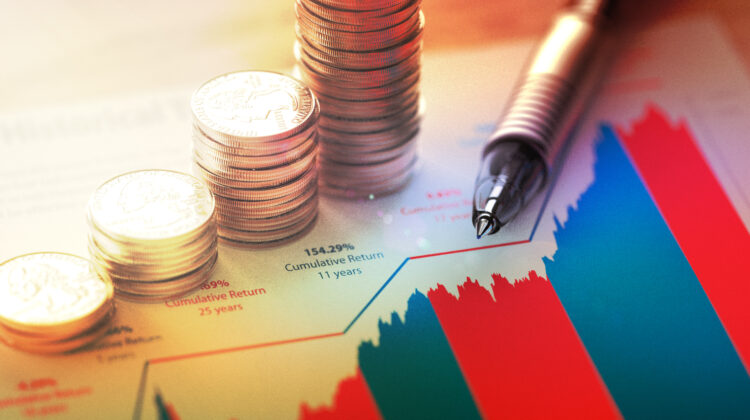
WHY SHOULD ONE INVEST
One of the important reasons why one needs to invest wisely is to beat the inflation. Inflation is defined as sustained increase in the general level of prices for goods and services. In simple, Increase in price and fall in the purchasing value of money. Inflation causes money to lose value because it will not buy the same amount of a good in the future as it does now or did in the past. Say, inflation rate is 5% p.a for next 15 years, an Rs.1000 purchase today would cost Rs. 2078.95 in 15 years. The goal of investment should give better return above inflation rate to ensure that the investment does not decrease in value. As we considered the rate of inflation is 5% p.a, the return from investment made should be more than 5% p.a to ensure the increase in value.
Let’s take an example:
Say, you want to buy a house for Rs.50lakhs after 15years.Then what is the actual cost of buying a house after 15 years?
Here, inflation will come into play and the cost of Rs.50,00,000 lakhs will turn to Rs.1,03,95,000 ( approx:1cr.4lakhs) @ 5% inflation after 15years.
Consider some factors:
Earnings per month =50,000
Expenses per month =20,000
Savings per month =30,000
- Rs.30,000* 12months*15years = 54lakhs
- So, if you save 30,000 per month it would become 50lakhs after 15years. But by the time the cost of purchase will jump to 1crore.
What to do then?
A best quote
“How much you earn is not matter, how much you save and diversify is matter”,
“Diversification is a protection against ignorance. It makes very little sense for those who know what they’re doing.” – Warren buffet.
- Investment should have a strong mix of all asset classes. It is advised to diversify ones investments in different asset classes. This technique of allocating money across various asset classes is termed as “Asset Allocation”.
- Investment makes you to prepare for your future and will give you security at old age.
- One can earn money in two ways by working and by having your assets work for you.
- People may have a different needs and wants, so investment should be done based on your profile, greed and goal.
- Some people think that investing in tradition instruments like F.D are secure and give good returns but, Investing in stocks and mutual funds will give better returns if planed for longer term.
- If you dream of earning a huge sum of money for future, start investing as early as possible as it reap and will fetch a lump sum amount exactly at useful time.
Now, you need to play your strategy to overcome and to beat the inflation with time period. Select the instruments which could fit with your strategy and can give high returns. Some of them are:
- Stock market: Buying stocks is one of the investment types where you become a part-owner of the business to the extent you invest capital. Investor can be benefited in 2 ways :
- By receiving Dividends (share in the profit)
- By Capital gain (gain arrived from selling the stock on appreciation)
Returns: Nifty index returns are approximately 12% to 15%
- Mutual Funds: It’s an investment vehicle, where money from retail investors are pooled into a single fund and investing them in diversified sectors. It is very popular because of its cost efficiency, sound regulation and professional management
Returns: Mutual fund returns are approximately
Equity: 12% to 15%
Debt: 7% to 9%
Balanced: 9% to 12%
- Corporate fixed deposits: Though it is a type of fixed deposit, it gives better returns when compared to that of investing in Banks F.D.
Returns: Ranges from 6% to 9%
- Real estate: It has become a profitable investment instrument due to the increasing cost of land, but to go with real estate one should have huge capital and patience to get higher returns.
Returns: Ranges from 12% to 18%
- Gold: It is considered as a Universal currency for hundreds of years. As it is an appreciable asset it could be benefit over a period of time.
Returns: Ranges from 9% to 12%
Note: These above returns are approximate based on past performance, but in some scenarios returns may differ.
Now, investment decision should be based on your
- Risk profile
- Available savings
- Goals and
- Time horizon
Say for:
- A young professional may take a higher amount of risk considering his age and years of investment available to him, typically these age people should allocate around 70% of his investments in Equity (shares, mutual funds), 20% in debt & F.D, the rest in precious metals.
- A retired person could invest 80% of his savings in Debt & F.D, 10% in equity and 10% in precious metals.
- My advice is to start investing as early as possible regardless of your earnings capacity and age.













